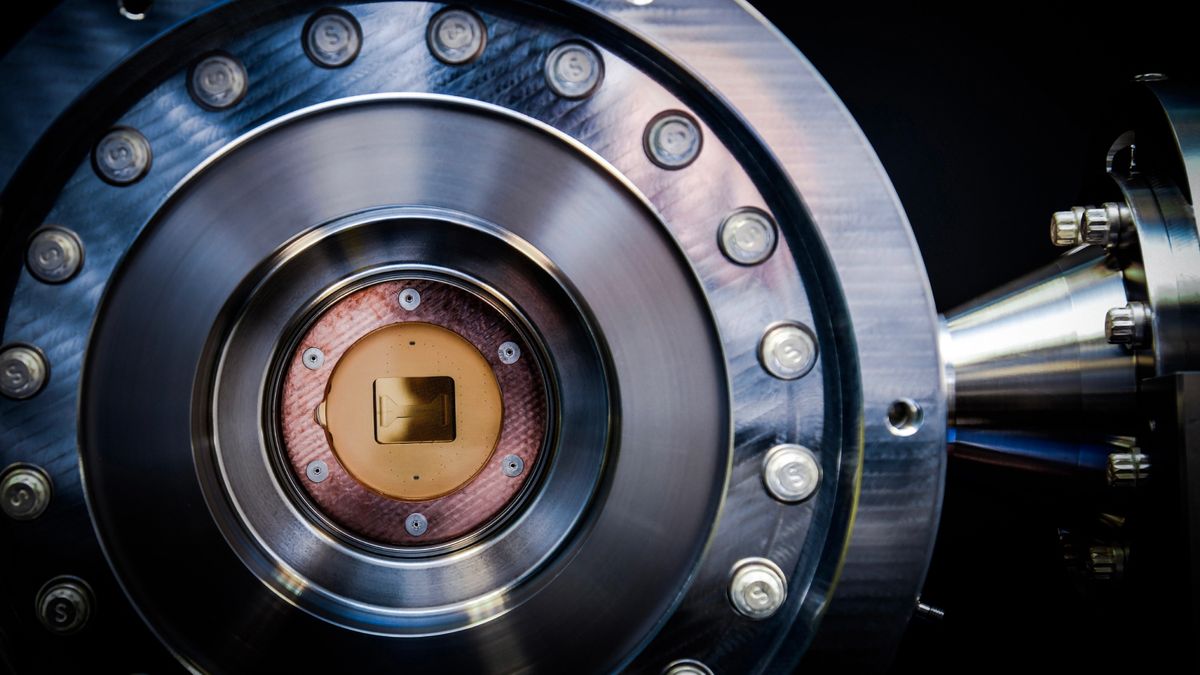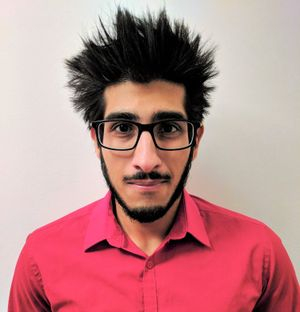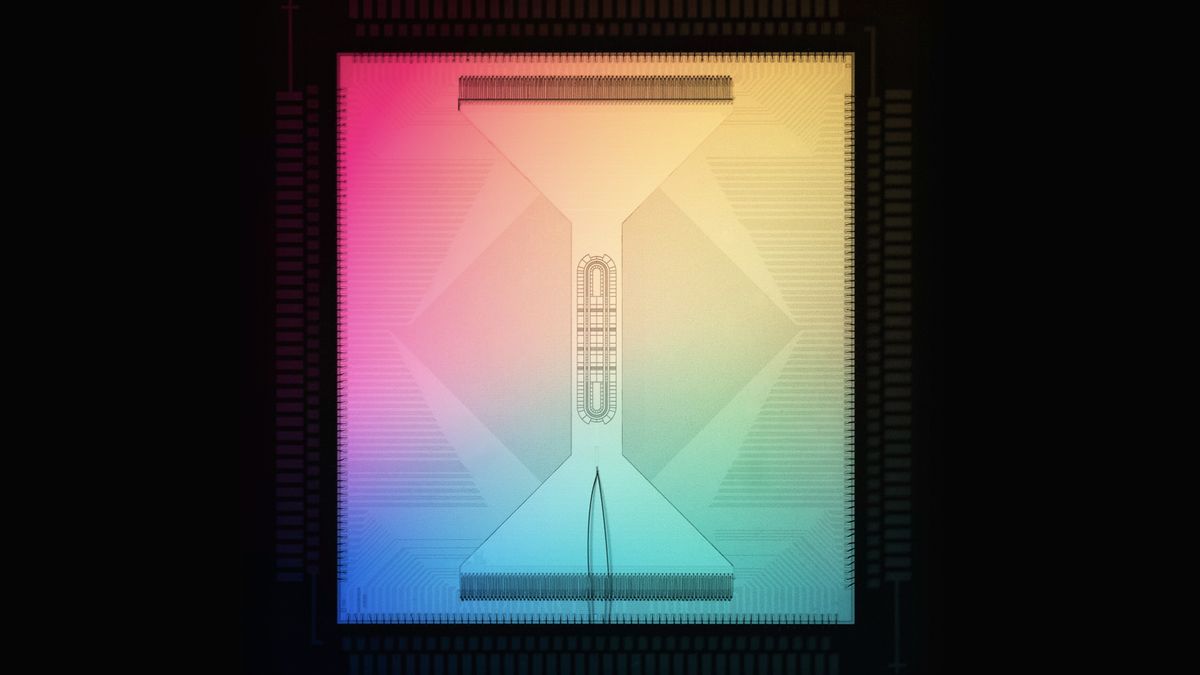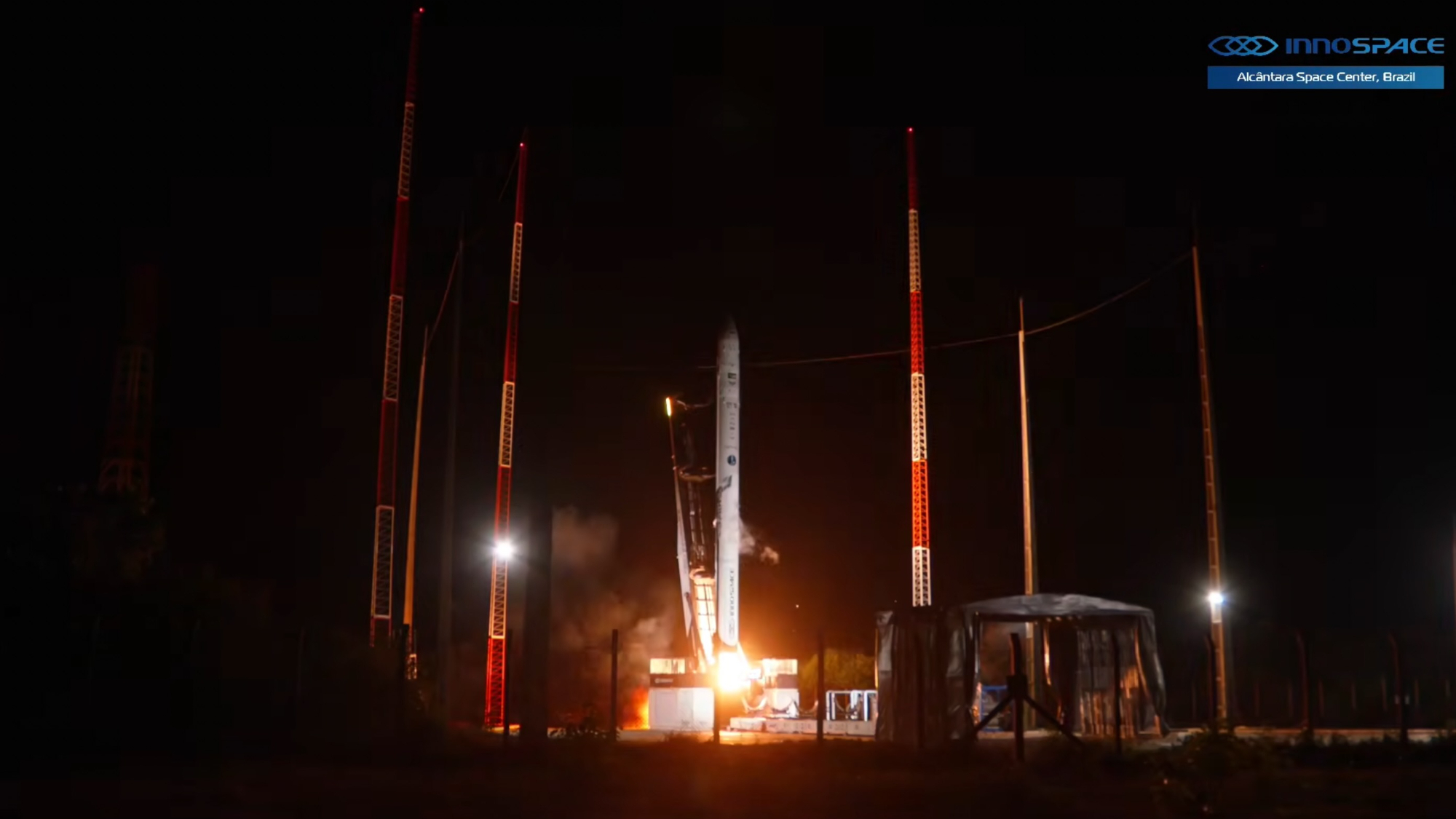New quantum computer smashes 'quantum supremacy' record by a factor of 100 — and it consumes 30,000 times less power
The 56-qubit H2-1 computer has broken the previous record in the 'quantum supremacy' benchmark first set by Google in 2019.

A new quantum computer has broken a world record in "quantum supremacy," topping the performance of benchmarking set by Google's Sycamore machine by 100-fold.
Using the new 56-qubit H2-1 computer, scientists at quantum computing company Quantinuum ran various experiments to benchmark the machine's performance levels and the quality of the qubits used. They published their results June 4 in a study uploaded to the preprint database arXiv. The study has not been peer-reviewed yet.
To demonstrate the potential of the quantum computer, the scientists at Quantinuum used a well-known algorithm to measure how noisy, or error-prone, qubits were.
Quantum computers can perform calculations in parallel thanks to the laws of quantum mechanics and entanglement between qubits, meaning the fates of different qubits can instantly change each other. Classical computers, by contrast, can work only in sequence.
Adding more qubits to a system also scales up the power of a machine exponentially; scientists predict that quantum computers will one day perform complex calculations in seconds that a classical supercomputer would have taken thousands of years to solve.
The point where quantum computers overtake classical ones is known as "quantum supremacy," but achieving this milestone in a practical way would need a quantum computer with millions of qubits. The largest machine today has only about 1,000 qubits.
The reason we would need so many qubits for "quantum supremacy" is that they are inherently prone to error, so many would be needed to correct those errors. That's why many researchers are now focusing on building more reliable qubits, rather than simply adding more qubits to machines.
Breaking space news, the latest updates on rocket launches, skywatching events and more!
The team tested the fidelity of H2-1's output using what's known as the linear cross entropy benchmark (XEB). XEB spits out results between 0 (none of the output is error-free) and 1 (completely error-free), Quantinuum representatives said in a statement.
Scientists at Google first tested the company's Sycamore quantum computer using XEB in 2019, demonstrating that it could complete a calculation in 200 seconds that would have taken the most powerful supercomputer at the time 10,000 years to finish. They registered an XEB result of approximately 0.002 with the 53 superconducting qubits built into Sycamore.
But in the new study, Quantinuum scientists — in partnership with JPMorgan, Caltech and Argonne National Laboratory — achieved an XEB score of approximately 0.35. This means the H2 quantum computer can produce results without producing an error 35% of the time.
"We are entirely focused on the path to universal fault tolerant quantum computers," Ilyas Khan, chief product officer at Quantinuum and founder of Cambridge Quantum Computing, said in the statement. "This objective has not changed, but what has changed in the past few months is clear evidence of the advances that have been made possible due to the work and the investment that has been made over many, many years."
Quantinuum previously collaborated with Microsoft to demonstrate "logical qubits" that had an error rate 800 times lower than physical qubits.
In the study, published in April, scientists demonstrated they could run experiments with the logical qubits with an error rate of just 1 in 100,000 — which is much stronger than the 1-in-100 error rate of physical qubits, Microsoft representatives said.
"These results show that whilst the full benefits of fault tolerant quantum computers have not changed in nature, they may be reachable earlier than was originally expected," added Khan.

Keumars is the technology editor at sister site Live Science. He has written for a variety of publications including ITPro, The Week Digital, ComputerActive and TechRadar Pro. He has worked as a technology journalist for more than five years, having previously held the role of features editor with ITPro.
An NCTJ-qualified journalist who specializes in technology, his path into journalism began at university. He immersed himself in student media while studying for a degree in Biomedical Sciences at Queen Mary, University of London. After graduating, Keumars wrote for a variety of local and national publications as a freelancer, including The Independent, The Observer, and Metro. While studying for his NCTJ certification, his work was commended in the category of ‘Top Scoop’ in the 2017 NCTJ awards. He’s also registered as a foundational chartered manager with the Chartered Management Institute (CMI), having qualified as a Level 3 Team leader with distinction in 2023.


